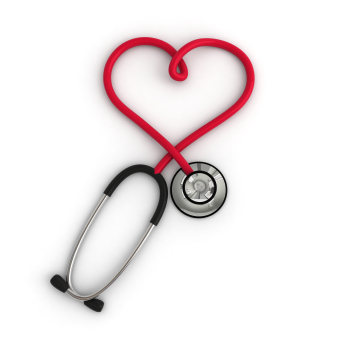November 22nd, 2011 by DrWes in News, Opinion
No Comments »

From Medgadget via The Medical Quack:

EBR Systems, a start-up out of Sunnyvale California, and Cambridge Consultants, the technology design and development firm, have developed a leadless pacemaker system for patients with advanced heart failure. The Wireless Cardiac Stimulation System (WiCS) comprises two units, an implantable electrode and an external control unit. The electrode incorporates an ultrasonic, wireless receiver and delivers an electrical stimulus to the heart based on triggering signals from the external control unit.
In its current iteration the WiCS system is designed to work with conventional pacemakers/defibrillators pacing the right ventricle of patients requiring biventricular pacing. The WiCS external control unit senses the pacing stimulus delivered to the right ventricle and initiates a burst of stimulus from the electrode implanted in the left ventricle. According to the company, Read more »
*This blog post was originally published at Dr. Wes*
September 28th, 2011 by Bryan Vartabedian, M.D. in Opinion
No Comments »

 It seems that there are medical schools taking the initiative to help their students become more compassionate. It’s a worthy goal but I don’t know if it’s possible. We can teach individuals to act compassionate. But that, of course, is different from being compassionate. While there may be literature to support the cause, I don’t think that a curriculum can cultivate empathy.
It seems that there are medical schools taking the initiative to help their students become more compassionate. It’s a worthy goal but I don’t know if it’s possible. We can teach individuals to act compassionate. But that, of course, is different from being compassionate. While there may be literature to support the cause, I don’t think that a curriculum can cultivate empathy.
Is it possible to change a student or doctor’s heart? Of course, I see it all the time. But not from role playing or small groups. It’s human circumstances that drive change. Personal loss and life experience tempered by introspection and humility change how we see those around us. It’s only when we recognize our own vulnerability that we can begin to see it in others. This doesn’t happen in a classroom. Read more »
*This blog post was originally published at 33 Charts*
August 25th, 2011 by DrWes in Opinion, Research
No Comments »

A new report published online in the Journal of the American College of Cardiology and reported in theHeart.org and elsewhere, suggests the infection rate of cardiac implantable electronic devices (CEID’s) between 1993 and 2008 has greatly increased from 1.53% in 2004 to 2.41% in 2008 (p < 0.001) with a dramatic rise in 2005:

Click image to enlarge
The authors explain this sudden increase on the basis of comorbities: Read more »
*This blog post was originally published at Dr. Wes*
August 24th, 2011 by John Mandrola, M.D. in Health Tips
No Comments »

It may seem a little formal to say this, but I would like to start by stating my goals for today’s post:
- Introduce the concept of the athletic heart;
- Touch upon the notion of sudden death of the athlete;
- Explain what an ECG really is, and how it may help diagnose heart disease;
- Review a recent study about the common ECG variant seen in athletes…Early repolarization.
Intro: The adaptations of the human heart never cease to amaze me. Physical training transforms our hearts into high performance engines. Repeated sessions of interval training, combined with longer aerobic efforts, and sprinkled with adequate rest maximize our ability to keep pressure on the pedals, or run the sixth mile of the 10k at the same pace as the first, or for you swimmers, to keep getting back to the wall on the 1:15 mark.
Fitness also brings measurable changes in things we can observe. Read more »
*This blog post was originally published at Dr John M*
July 3rd, 2011 by RyanDuBosar in Humor, Research
No Comments »

Laughter is the best medicine, and now, here’s the best medicine to treat laughter. Fainting from laughter happens, albeit rarely, and is probably a vasovagal response, reports a case series in the medical literature.
Dubbed “Sitcom Syncope,” the series of three patients and a literature review of other cases evaluated patients who reported loss of consciousness during vigorous laughter. The series was reported by Prashan H. Thiagarajah, MD, an ACP Associate Member at the Allegheny General Hospital in Pittsburgh, Pa., and colleagues in Postgraduate Medicine.
The three patients reported seven fainting spells induced by vigorous laughter that were witnessed friends or family.
All patients were hospitalized and underwent a complete history and physical, 12-lead echocardiogram, chest radiograph, routine blood analysis, transthoracic echocardiography, Holter monitoring, carotid duplex study, stress testing, polysomnography, and head-up tilt table testing. In each cases, structural heart disease and cerebrovascular disease were ruled out. Read more »
*This blog post was originally published at ACP Internist*

















